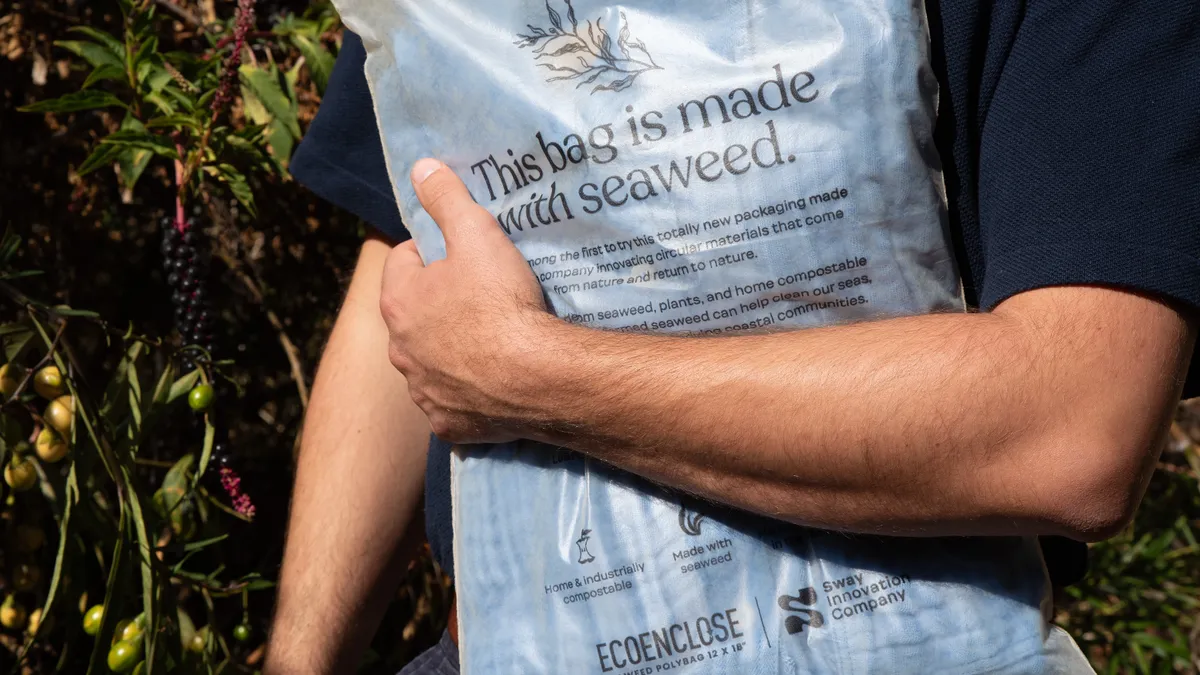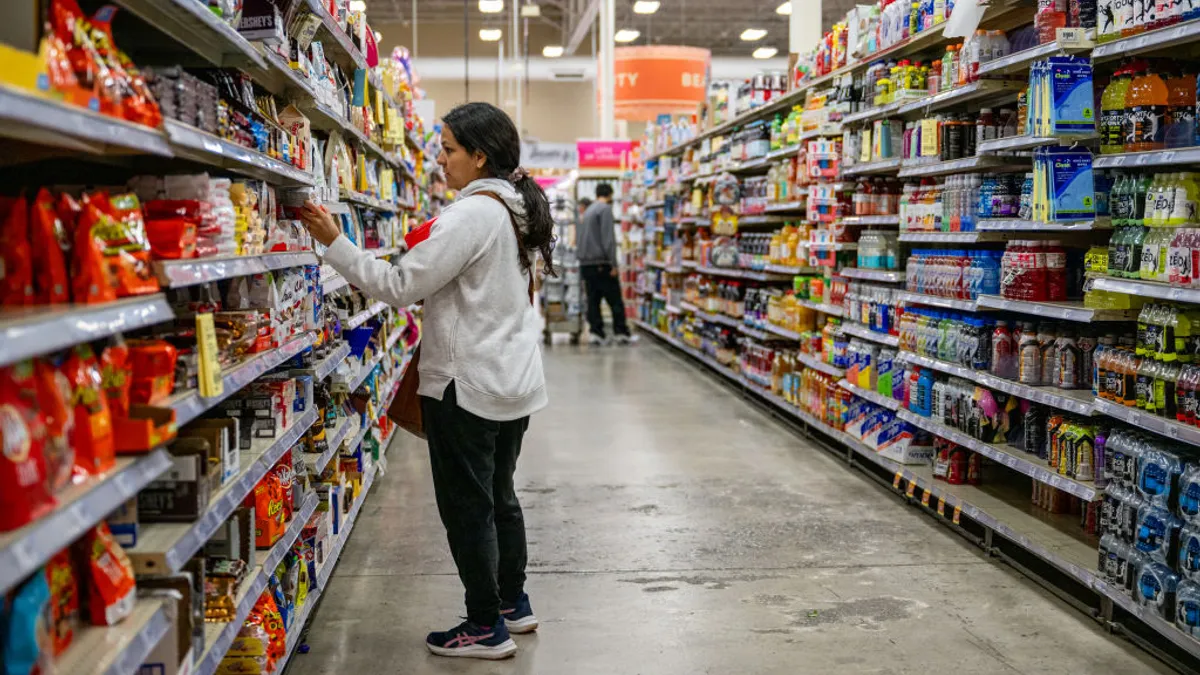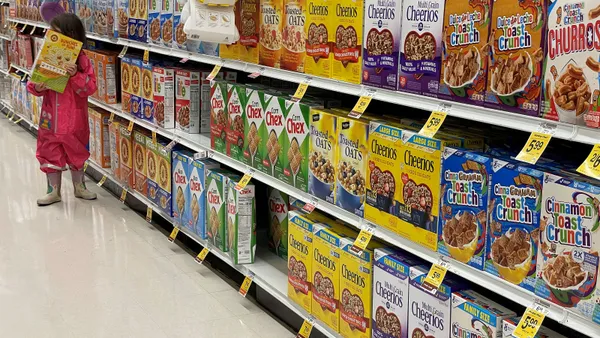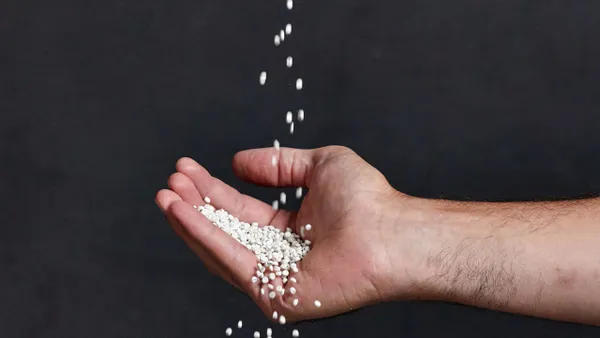Dive Brief:
- Material innovation company Sway announced this week that four fashion brands will participate in the launch of its polybags that are made with seaweed, plants and compostable polymers, and printed with ink derived from algae. They are designed to degrade in home and industrial compost environments.
- Prana, Faherty, Alex Crane and Florence are expected to begin using the bags to package garments like shirts and shorts beginning in the fourth quarter of 2024 and first quarter of 2025.
- Starting in 2025, Sway will sell the polybags through online sustainable packaging marketplace EcoEnclose, an ongoing partner for the California-based startup. EcoEnclose CEO Saloni Doshi anticipates “expanding our marketplace with Sway materials in the coming year,” according to the announcement.
Dive Insight:
In a sea of plant feedstocks, such as agricultural byproducts from corn and sugarcane, seaweed has emerged as a contender for creating bio-based packaging materials. Proponents note that seaweed is an abundant and regenerative source that’s already found on coastlines and does not require land or pesticides for growth. It naturally has a gelling, plastic-like property.
By targeting polybags, used in fashion supply chains to protect products from dust and damage, Sway says it’s making a dent in a product area that involves billions of plastic bags each year, very few of which are ever recycled. “Many polybags can and should be eliminated,” the company stated in its announcement.
“Over the last 6 months, Sway’s R&D team has been heads-down on scale-up, ensuring that our seaweed-based materials can be produced in high volumes and perform optimally through variable conditions of global supply chains,” says Matt Catarino, senior materials engineer at Sway, in the company’s announcement. “We successfully completed our largest production run to-date this summer, and have plans to reach commercial volumes by the start of 2025.”
These polybags are not Sway’s first product. Sway’s FirstWave film has been used to create clear windows on box packages. Sway closed a $5 million seed funding round earlier this year. It has previously collaborated with retail partners including J.Crew and Burton after it won the 2023 Tom Ford Plastic Innovation Prize.
Julia Marsh, Sway’s CEO and co-founder, said at SPC Advance in Chicago on Oct. 1 that her “biggest dream in the future” is that there be a responsible seaweed sourcing equivalent to the Forest Stewardship Council certification that accounts for its biodiversity impact and reversal of ocean acidification, so that packaging made from that material supports sustainability goals and benefits the climate and communities.
Marsh said that, for production, Sway is working with traditional plastics manufacturers. To meet growing demand, these partnerships are critical and must be harmonious, she said. “And those who don't, I'm sorry to say, they will lose,” said Marsh, noting that a diverse range of packaging solutions will be necessary.
Marsh said Sway is actively seeking development partners who want to expand use cases of its pellet and flexible film offerings.
Marsh said the company is motivated to grow composting. “Our motivation is, if we increase the use of compostable materials, there will be more composting.”
Sway’s home state of California is cracking down on what products can be labeled “compostable” or “home compostable,” via AB1201, a law passed in 2021.
“A big priority for us is actually working with composters, validating field testing, to help them understand that there are very viable and attractive end-of-life pathways for our materials,” she said. “In fact, materials that contain seaweed actually have the potential to behave like other organic waste or like food.”
The next applications that Sway is eyeing include mailers and multilayer packaging.
Editor’s note: This story has been updated to clarify remarks made by Marsh at SPC Advance.















